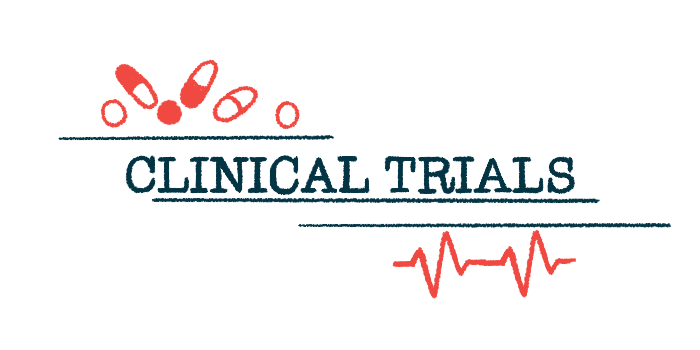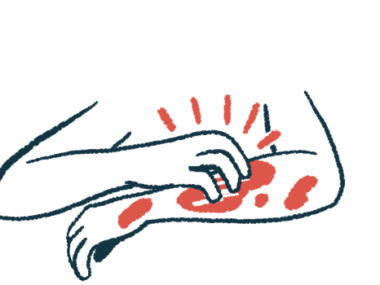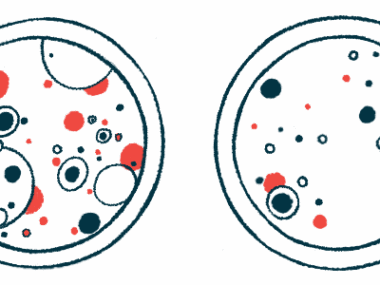Traws advances development plans for rigosertib in RDEB-SCC
Data from 2 trials yield positive findings on efficacy, tolerability, study shows
Written by |

Traws Pharma said it will advance development of skin cancer therapy rigosertib, after data showed the therapy led to a partial or complete treatment response for four recessive dystrophic epidermolysis bullosa (RDEB) patients with advanced forms of the skin cancer squamous cell carcinoma (SCC).
The data came from two ongoing, investigator-initiated Phase 2 trials — one running in the U.S. (NCT04177498) and the other in Austria (NCT03786237) — which are the first to test an experimental cancer therapy in RDEB-SCC. The Austrian study is recruiting participants, according to its trial page.
The findings were detailed in a study, “Efficacy and Safety of Rigosertib in Patients with Recessive Dystrophic Epidermolysis Bullosa Associated Advanced/Metastatic Cutaneous Squamous Cell Carcinoma“ published in the British Journal of Dermatology.
Traws said it is seeking partners to further advance rigosertib’s development, and is starting plans for a confirmatory Phase 2 trial.
“We are excited to report the compelling efficacy and tolerability profile of rigosertib in this devastating, difficult to treat disease, and thank the patients, sponsors and investigators for their commitment to this program,” Iain Dukes, Traws’ interim CEO, said in a company press release. “Rigosertib is available for further development and commercialization, and we are committed to finding an appropriate partner to advance this important medicine to approval.”
RDEB patients vulnerable to skin cancer
People with RDEB are lacking in type VII collagen, a protein important for anchoring layers of skin together. EPB symptoms include fragile skin, which gives rise to blisters and wounds that easily become infected.
The disease also leaves individuals susceptible to SCC, which is the leading cause of death in RDEB. While SCC in people without RDEB is often successfully treated with surgery, the cancer tends to take a more aggressive course in people with RDEB and spreads beyond the skin.
“The aggressive course of this disease is inadequately addressed by current treatment regimens, which produce limited response rates of mostly short duration,” said Victor Moyo, MD, chief medical officer oncology at Traws.
Rigosertib is a small molecule that inhibits cellular pathways involved in driving cancer cell growth. In particular, it inhibits PLK-1, a protein that’s found at higher than normal levels on RDEB-associated SCC tumors.
Rigosertib was originally developed by Onconova Therapeutics, which last year merged with Trawsfynydd Therapeutics to form Traws. Two of the study’s authors are listed as employed by Onconova.
The therapy has also been tested as part of combination regimens for the treatment of other cancers. The two investigator-initiated trials are similarly designed, involving adults with RDEB who have treatment-resistant, advanced SCC.
All participants received rigosertib — either taken orally or infused into the bloodstream — for up to a year, with the specific dosing regimen depending on the route of administration.
In the recent study, the scientists reported findings from the first five participants who received rigosertib in the trials.
The main goal was to evaluate the overall response rate, or the proportion of people who had at least a partial treatment response.
Consistent with previous analyses, the data showed that all four patients who completed more than one cycle of treatment achieved such a response. Two of them achieved a complete response, and were considered to be in remission after three and six cycles of treatment.
One of the remaining two patients achieved a partial response after two cycles of treatment, but the person’s disease progressed some weeks later. The patient withdrew from the study and died two weeks later.
The other had achieved a partial response after a little over three months, but later withdrew from the study due to travel difficulties. That patient later died due to complications from an infection.
A fifth patient received one cycle or oral treatment, but withdrew before they could be evaluated for a treatment response.
Overall, “these data indicate that rigosertib is a potential treatment for cutaneous SCC in RDEB patients, where there is a substantial unmet need and no approved therapies,” Moyo said.
The rigosertib dose had to be reduced in some cases due to side effects. Dose-limiting side effects included bladder inflammation, bloody urine, and increased urinary urgency or frequency.
Quality of life measures generally remained stable during the study.
“These initial results indicate rigosertib as a promising drug therapy for RDEB-SCC,” the researchers wrote.
Traws has said an additional Phase 2 trial could be enough to seek regulatory approval for rigosertib. A proposed trial would test response rates with oral rigosertib among RDEB-SCC patients, ages 12 and older, who are not candidates for surgery and who have failed to respond to immune checkpoint inhibitor-based therapy.






